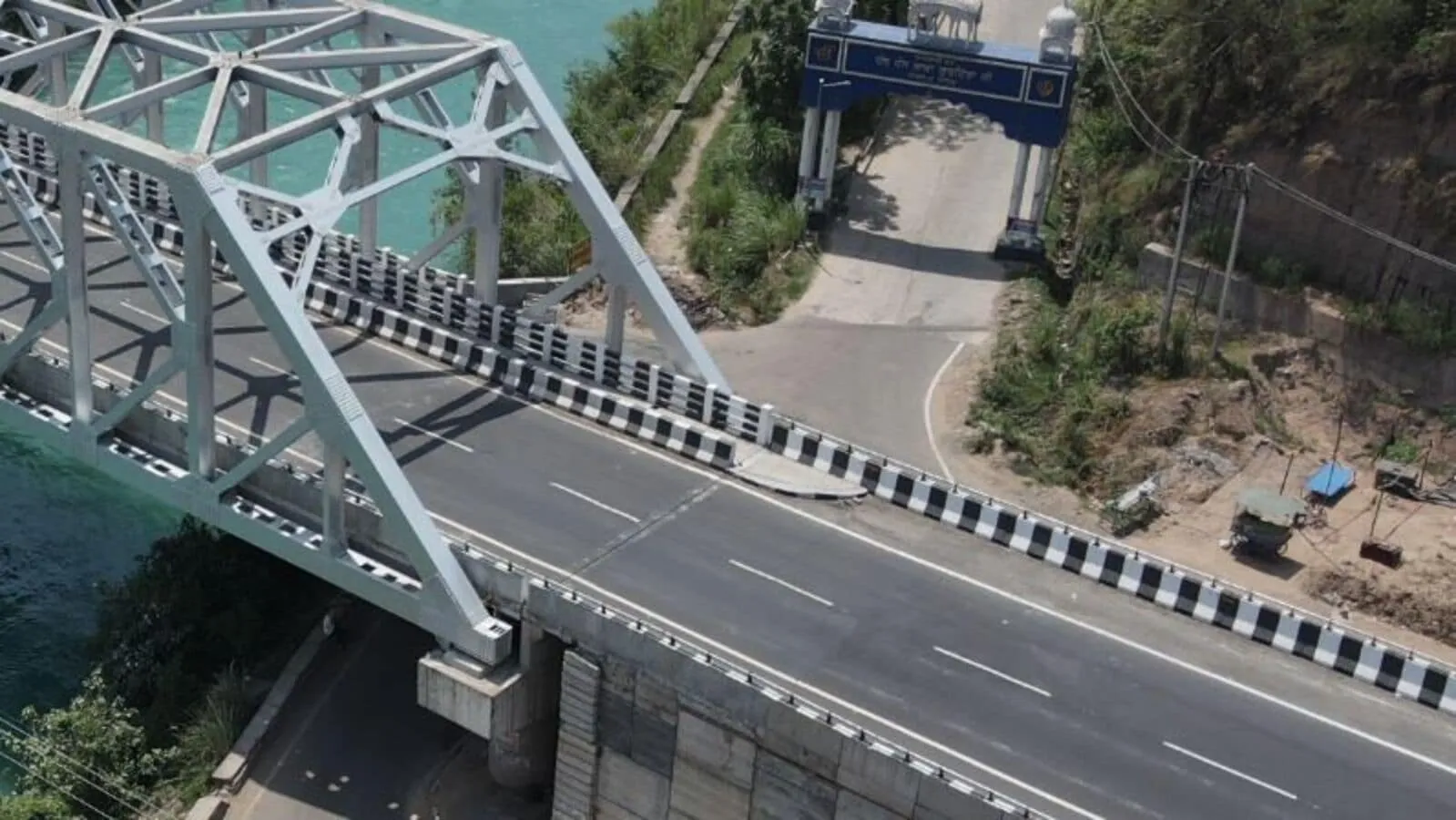
Jindal Saw Announces 2:1 Stock Split: Key Details and Investment Opportunities
Jindal Saw announced a 2:1 stock split. The date of record for the sub-division of the shares has been fixed as October 9, 2024. It will reduce the face value of every share and double up the number of shares available in the market, making them accessible to retail investors. As the global leader in the pipe business, Jindal Saw produces carbon pipes, alloy pipes, seamless pipes, and submerged arc welded (SAW) pipes for other industrial applications.
About Jindal Saw and Global Presence
Jindal Saw is an iron and steel pipe products major. Ductile Iron DI pipes, spiral pipes, and fittings are used in water transportation, wastewater, oil and gas companies, engineering firms, government agencies, and industries such as irrigation, power generation, and construction.
With a strong foothold in India, the United States, Europe, and the Middle East (MENA), Jindal Saw operates several production sites around the globe and is a key supplier of energy transportation solutions and industrial infrastructure needs. The company offers a great range of carbon and alloy pipes to submerged arc welded pipes, catering to some of the world’s largest oil, gas, and water resource projects.
Why the 2:1 Stock Split Matters
A stock split occurs when a company increases its number of shares by splitting existing shares into multiples, thereby not affecting the overall market capitalization. Therefore, if Jindal Saw splits 2:1, then with every one share held, one additional share would be received for shareholders so effectively halves the price per share but doubles the number of outstanding shares in circulation.
This will split the equity and it will be more affordable for the retail investors, and market participation will increase along with liquidity.
With Jindal Saw being one of the largest producers of critical infrastructure products globally, this move works well with its strategy of increasing the reach of the investor base in having more long-term investments.
Jindal Saw Critical Products and Usage
Jindal Saw is manufacturing a wide series of pipe types that are of paramount importance in industrial, commercial as well as government projects:
Carbon Pipes :
They use carbon pipes for building energy resources, construction projects, and transportation. Alloy Pipes: They provide higher strength levels along with resistance, which is favorable to high-pressure applications like oil and gas pipelines. Seamless Pipes: Seamless pipes are used for industries that call for corrosion resistance along with possible handling of a high pressure. An example of such firms would be the power generation firm and engineering firm. Submerged Arc Welded (SAW) Pipes: These kinds of pipes are used for large diameter pipelines in energy transport.
Spiral Pipes: They are designed for use in water and wastewater transportation, mainly used for flexibility in design.
Ductile Iron Pipes: Primarily applied in water resources and irrigation because of their high strength and durability.
These products are the backbone of the major projects in different industries like oil and gas, water management, and construction.
Global presence of Jindal Saw
Jindal Saw is not limited only in India. The company has production sites and significant market presence in Europe, the United States, and the Middle East. Furthering the company’s position as a leading supplier for projects aimed at developing energy, water, and infrastructure in the MENA region.
As a company, the United States and Europe are established leaders in providing seamless pipes and alloy products for energy and infrastructure needs. On top of this, it continues to expand its footprint in other emerging markets through strategic partnerships and investments in production capacity.
Stock Performance and Market Outlook
Jindal Saw’s stock has seen significant action in 2024, which implies positive investor sentiment due to robust earnings and prospects of future growth. In the last few months, the stock is trading relatively close to a 52-week high besides the potential stock split that is expected to lead to greater investor participation in near future. Split record date is scheduled for October 9, 2024, thus acting as a critical event for existing shareholders as to decide who would get the new shares.
Added to this is a pretty solid set of financial performance coupled with spiking demand for its pipes and fittings, especially in energy, irrigation, and water resources. The company has also increased its market reputation as it supplies quality iron and steel pipe products to some of the largest oil and gas companies and government agencies in the world.
BUY or SELL?
These are some of the factors to be considered by investors when they decide whether to buy or sell Jindal Saw shares after the split:
Increased Liquidity:
As it is a stock split, it may increase the liquidity of the company’s shares. This often benefits the stock for short-term price appreciation because more investors can afford the buying of the stock.
Increasing Demand: Jindal Saw is one of the largest manufacturers of infrastructure products, including seamless pipes, SAW pipes, and ductile iron pipes which are critical for the oil and gas and construction industries.
Strong Fundamentals: The Company had remarkable financials, based on diversified operations across India, the United States, Europe, and MENA.
Investors bullish on infrastructure and industrial growth sectors would want to see the company as a BUY, given that the company has a global standing and product offerings are in essence. However, those investors who look for short-term gains may keep an eye on market conditions post-split because stock price can shift post-split with increased trading in the stock.
The next 2:1 stock split of Jindal Saw will attract attention from existing investors as well as prospective ones. The record date having been set as October 9, 2024, that should go to increase liquidity and benefit to draw in more retail participation into the fold thus making the stock more accessible.
Overall, this stock split makes Jindal Saw more attractive as a good entry point to invest into this company with sound fundamentals and market positioning in the iron and steel pipe manufacturing industry.
All above recommendations are of the market analysts. Neither the author, nor the brokerage firm, nor Stockstoday.in will be responsible for any loss arising out of any such decision taken based upon this information. All users are cautioned to take their own expert advice prior to making any investment decision.

Zomato Shares Rise Over 4% as Magicpin Gears Up for 2025 IPO
Shares of Zomato Jump as Magicpin Confirms 2025 IPO Plan Zomato’s stock has surged by more than 4% in two days after it was reported

Indo Farm Equipment IPO 2025: Key Highlights to Know Before Subscribing
Indo Farm Equipment IPO: Key Highlights to Know Before Subscribing Indo Farm Equipment, the well-known tractor and pick-and-carry crane manufacturer, is preparing to open its

Ceigall India Shares Surge 6%: ₹981 Crore NHAI Order Secured
Ceigall India Shares Up 6%: ₹981 Crore NHAI Order Won Infrastructure giant Ceigall India is making headlines today with its shares rising 6.18% on December

Senores Pharmaceuticals IPO Allotment Status link 26 Dec
Senores Pharmaceuticals IPO Allotment Status link 26 Dec The Senores Pharmaceuticals IPO has been grabbing much attention in the markets lately, primarily due to promising

Vishal Mega Mart IPO: ₹8,000 Crore Issue Opens December 11 -5 Key Things to Know
Vishal Mega Mart IPO: ₹8,000 Crore Issue Opens December 11 -5 Key Things to Know Vishal Mega Mart, one of India’s leading supermarket chains, is

HDB Financial Services IPO 2024: Key Details and Growth Potential
HDB Financial Services IPO 2024: Key Details and Growth Potential HDFC Bank-backed, wholly-owned, and 94.6%-holding NBFC in a retail-focused bank, HDB Financial Services is preparing


